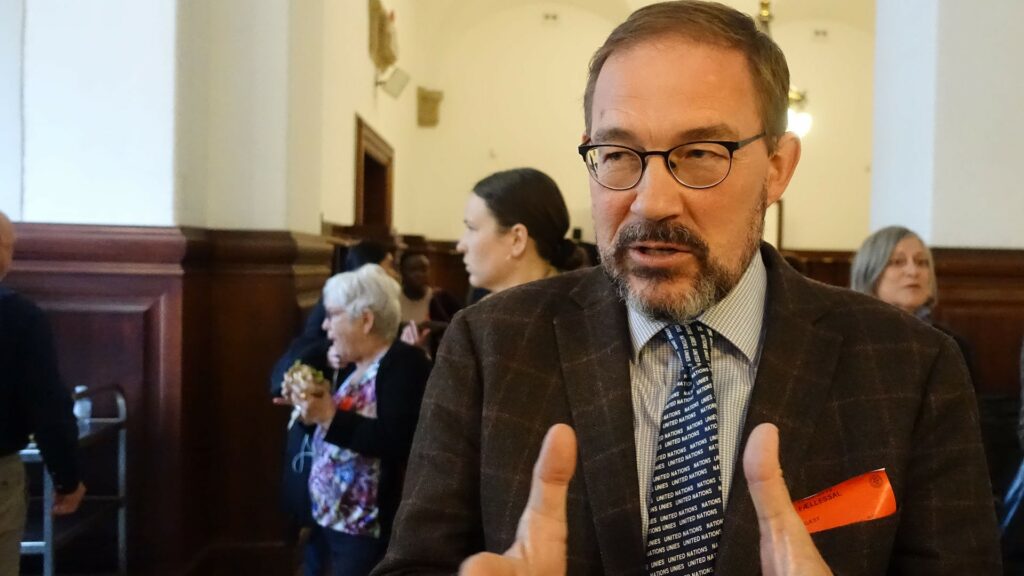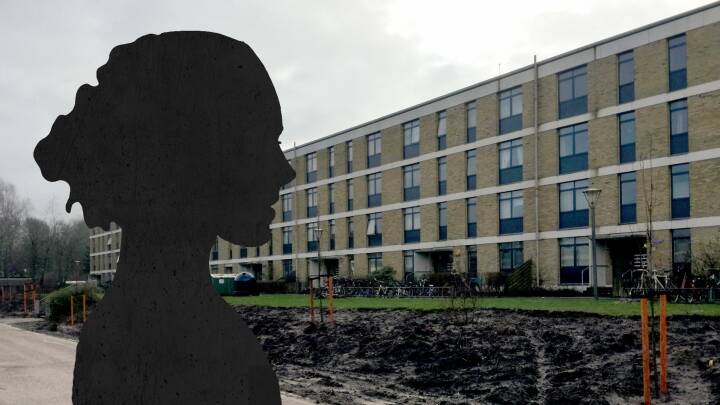(Bornholm, 14 June 2024)
Dear all,
I am delighted to be here today and to share my views on practical aspects of violation of human rights with regard to the right to seek asylum without the risk of punishment as stipulated by the Refugee Convention article 31.
My most important point here today is that those examples clearly demonstrate that Denmark as a Contracting State of the UN Refugee Convention has breached article 31 of the Convention, which clearly stipulates that the Party “shall not impose penalties, on account of their
illegal entry or presence, on refugees who, coming directly from a territory
where their life or freedom was threatened”.
This provision is also confirmed in guidelines, laid down by the Danish Attorney General in 2011 and which – to a large extend – was followed until 2022.
However today I have the pleasure to present to you a few examples from real cases handled by me, which will prove my points!
- Somali woman, who entered to Denmark in December 2022 and asked for asylum in the airport on arrival.
She arrived with a false passport, so she was immediately taken into custody and was sentenced for 40 days imprisonment and given a deportation order which included an entrance ban to Denmark for 6 years.
Even though she had asked for asylum she was after serving the 40 days imprisonment- then taken into custody for several months when her asylum case was processed. This was according to section 14, subsection 2 of the Return Act, with the purpose of ensuring that the deportation order can be carried out, after a final negative decision on asylum.
Only in August 2023 – after 8 months of detention – my client was granted a residence permit as a Convention refugee. As a reason for asylum, she has referred to the fact that she fears gender-specific persecution, as far as she was raped by three Al Shabaab members, after which she became pregnant and had to flee from the village, where she was born and raised.
After appropriate argumentation, the Refugee Board found my client as a single woman without a male network upon return to Somalia in need of protection. According to that background, my client was as a result granted residence permit pursuant to section 7, subsection 1 of the Aliens Act (Convention Refugee Status).
During her time in prison, she had to worry, not only if the Danish authorities were to send her back to Somalia, but she also worried about her minor children left behind in Somalia (one of which was the result of the rape she suffered).
At the Board meeting in august 2023 she came from prison guarded by two police officers and handcuffed.
When the Refugees Appeals Board then awarded her refugee status, she was finally free, and we were now able to seek family reunification with her 3 children.
This week we finally received the residence permits for the children, who are now in Nairobi/Kenya.
Next step is to find money for the tickets for the children’s trip from Kenya to Denmark, however recently she received a letter from the Danish authorities, that she is also to pay the legal coasts with regards to the criminal case, when she was convicted for using the false passport.
This is an amount of 3.200 Euro, which will make it almost impossible for her to pay for the air ticket for the children.
We thus argues, that since she was awarded Convention Refugee Status, she is not a criminal, and that it was a violation of the Convention article 31 to sentence her in the first place.
Consequently, we have now asked the prosecution in Copenhagen to reopen her criminal case in order to allow the City Court to make a new decision.
Firstly, we need to get rid of the deportation order and the entry ban of 6 years.
Secondly, we need to get rid of the criminal convention, including the duty to pay the legal coasts of the criminal case.
This is also a precondition for her to be able to seek permanent residence later as well as Danish citizenship. If, on the other hand, the criminal conviction is upheld, that will not be possible.
- I have a similar case with another Somalia women who arrived in 2023 and was detained for 8 months before she was granted Convention Refugee Status a thus realized from prison.
Like this Somalian woman, I have had several clients, who on arrival in the airport presenting a false passport or a passport that was not false but belonged to another person and thus detained a convicted right away. One other conviction Somali woman was also awarded Convention refugee status later and should as such never be convicted.
Before 2022 it was, however, very rare that criminal proceedings were initiated against these asylum seekers on arrival – exactly because you need to process the asylum cases first – in order to find out who are refugees and who are not.
Before the asylum seekers with false passports were placed in a refugee camp with the purpose of the processing of the asylum cases, and only after a final negative decision on asylum – prosecution would then decide whether or not to press charges. This was also in line with the instruction from the Prosecutor General.
But since 2022 suddenly I have had many (about 10) cases with clients who were taken to prison (instead of a refugee camp) and sentenced to 10 or 40 days imprisonments and also given a deportation order. All of those clients have thus spent months in detention during the processing of the asylum cases.
Before 2022 our clients were mainly detained after a final negative decision by the Refugees Appeals Board in order to secure a return to the countries of origin. Often country of origin refuse to accept and during this process our clients may stay in detention for up til 1 ½ years.
But with this new practice starting in 2022, we now have risk of much longer detentions since this can now include both the period of seeking asylum, and furthermore the period after a final decision by the Refugee board.
Another asylum seeker spent one and a half years in the detention, while his case processed. He was deprived of his liberty after arriving by plane from Athens; he was sentenced to prison for 40 days with further prolongation and deportation from Denmark with an entry ban for 6 years for violation of Section 171 of the Criminal Code.
He was remanded in custody and was refused asylum in June 2023.
The most important thing in this case is that my client was not granted an asylum, but he was recognized as a victim of human trafficking and accordingly, he couldn’t be treated in a custody as a victim of human trafficking. The Danish Center against Human Trafficking CMM held an interview with the foreigner and assessed that my client should be considered as a victim of human trafficking, so the High Court finds that a continued imprisonment pursuant to § 14, subsection of the Return Act. 1, no. 1, until 5 March 2024 will not be proportional.
This person demonstrated cooperation and didn’t oppose to his deportation, which couldn’t be implemented as far as my client didn’t have a passport and communication with the Embassy of Burkina Faso was tightening.
Me as a lawyer protested against continued detention and continued to refer to considerations of proportionality and failure to advance the case. Identity confirmation, long communications with Greek authorities and the Embassy took time and all this period of time my client was in a prison.
Finally on the Eastern High Court freed my client on Marts 2024 (after a total of 1 ½ years’ imprisonment).
Are all convicted asylum seekers then detained during the processing of their asylum cases according to Section 14, subsection 2 of the Return Act?
No, when Parliament passed the law on Return 2021 it was stipulated, that if it is obviously a refugee – who is seeking asylum – an asylum seeker with a criminal conviction and thus deportation order – should not be detained during the processing of his or her asylum application process.
In other words, if it is a man from Syria (age of military service) or a woman from Afghanistan who will certainly be granted asylum, then section 14, subsection 2 of the return Act should not apply.
We thus also have examples of the High Court decisions freeing asylum seekers from Syria – but this is a very, very small exception to the MAIN RULE that says DETENTION DURING THE HOLD PERIODE OF ASYLUM SEEKING.
Since I already have at least two out of about 10 cases of detained asylum seekers who turned out to be Convention Refugees, I think the risk is much too big that violations of Artikel 31 of the Refugee Convention will now happens continuously.
But even though who are not Convention Refugees but only accepted under the Danish Aliens Act section 7, 2 or 7, 3 (temporary refugee status) should also not be punished.
Thank you for your attention!



